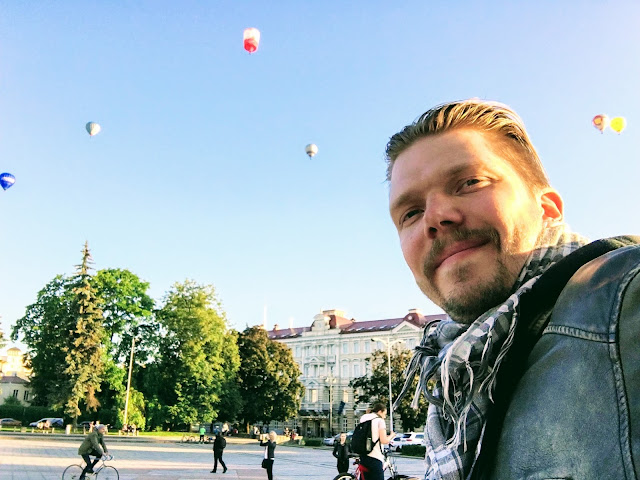Five Hypotheses About Happiness
In order to protect myself from confirmation bias, I decided to put my beliefs about happiness under test. First I deconstructed them into smaller hypotheses.
It's important to note, that the definition of happiness is not yet clear for me (nor for anyone as I actually understand). My hypotheses aren't so much about the hedonistic tradition of happiness, where the focus is on seeking pleasant and avoiding unpleasant experiences.
At this point I rather hold the eudaimonic meaning in mind, where
My five hypotheses:
It's important to note, that the definition of happiness is not yet clear for me (nor for anyone as I actually understand). My hypotheses aren't so much about the hedonistic tradition of happiness, where the focus is on seeking pleasant and avoiding unpleasant experiences.
At this point I rather hold the eudaimonic meaning in mind, where
happiness is centered on living life in a full and deeply satisfying way.
My five hypotheses:
- All people want to be happy.
- If a person wants to become happy, they must first understand and accept the situation they're in right now.
- If a person wants to become happy and has accepted the situation they're in, they next have to discover, what their Why? (purpose, cause of belief) is.
- If a person has discovered their Why?, then dreams grow out of it.
- If a person has found and knows how to work towards their dreams, then happiness will be achieved.
The five stated hypotheses are a bit rugged in their wording and by no means strive to be something definitive. They are just my humble start in the search for disconfirming evidence, so I can fight confirmation bias and through that strengthen and clarify my belief.
***
Thank you for checking out the post! If you have any thoughts or ideas about this, then I'd be more than glad to discuss them in the comments section below.


Due to me switching off the Google+ commenting system on this blog and therefore enabling a broader range of commenting possibilities (e.g. anonymously), a comment made previously by Puncho is unfortunately no longer visible here. I apologize.
ReplyDeleteI'm still a bit confused about the second statement. Why it is so important to accept the situation I'm in right now. Can't I just begin with the question why and that way maybe start to make changes in my current situation without the acceptance?
ReplyDeleteFirst of all, thank you for sharing your thoughts!
DeleteI have based this particular hypothesis on two approaches I find very useful - mindfulness and stoicism.
Mindfulness has been defined as "the intentional, accepting and non-judgmental focus of one's attention on the emotions, thoughts and sensations occurring in the present moment" ("Full Catastrophe Living" by Jon Kabat-Zinn).
Stoicism on the other hand is also in great part about accepting those things which are genuinely beyond your control.
Maybe my stated hypothesis is indeed too broad in the sense of acceptance. What I specifically have in mind is something more like this:
If a person wants to become happy, they must first understand and non-judgmentally accept the situation they're in right now (situation equals here the combined parts of a persons emotions, thoughts, sensations and the external things that are beyond their control).
The theory is that when you allow yourself to see things as they are, by being aware, then you dis-cloud your mind and make room for creativity and clarity. So you may move on more freely to the other parts of the equation of happiness.
Of course you may also begin with the question of "Why?". For sure there is no best way of living, only oneself's unique way. And since we're humans we're doing and thinking things interchangeably anyway, in the order that best suites us.
As I see it, living life in a full and deeply satisfying way is (paraphrasing Jean-Luc Godard) like a story with a beginning, a middle and an end, but not necessarily in that order.
The five hypotheses hopefully serve not to guide, but to discover and build a better singular self.
Let me know if I the confusion about the second statement is cleared or if I made it worse. :)